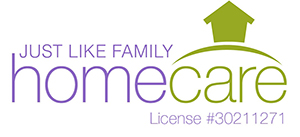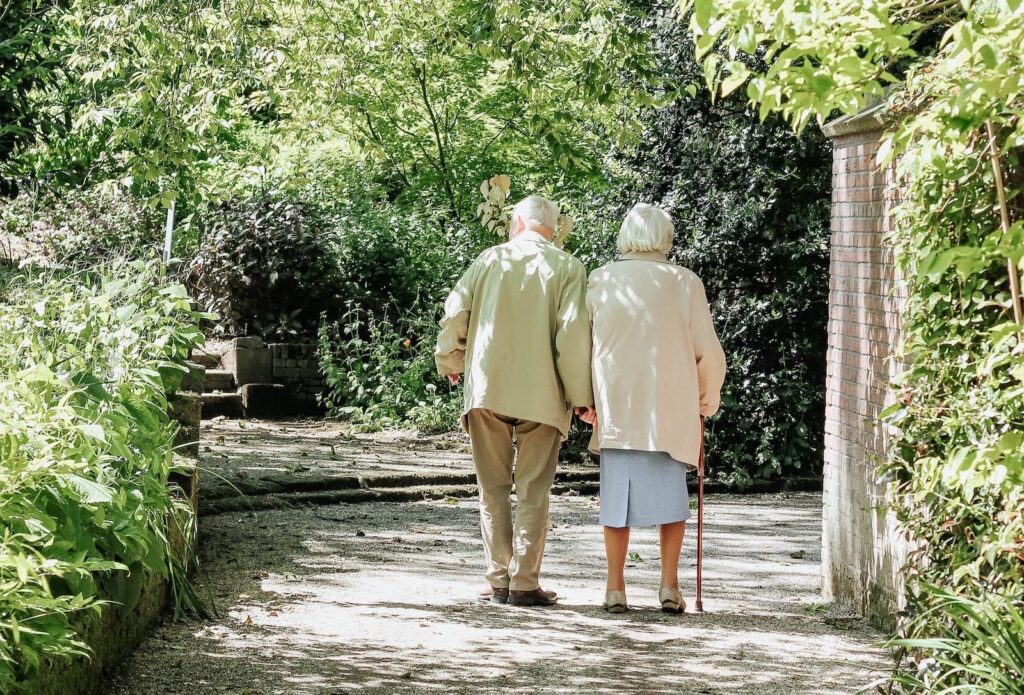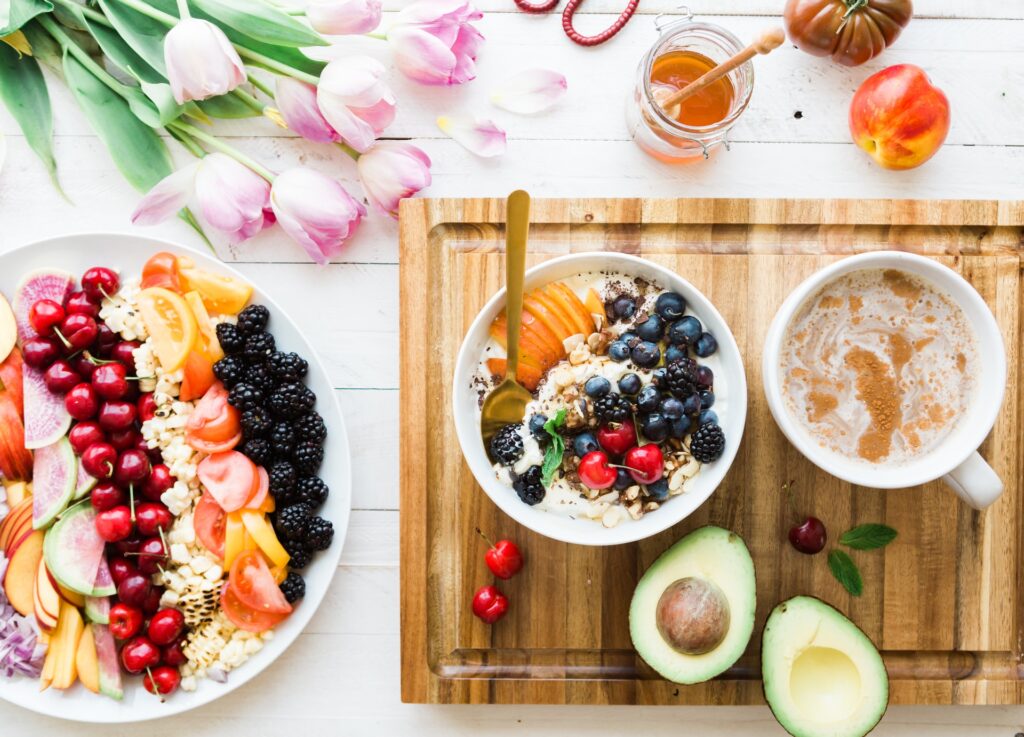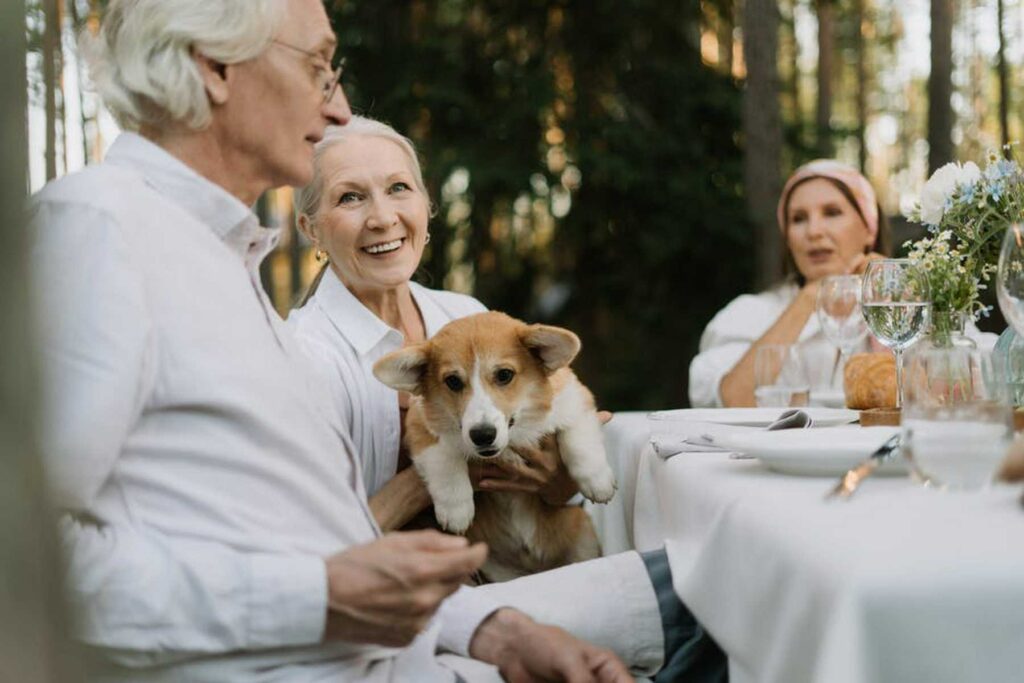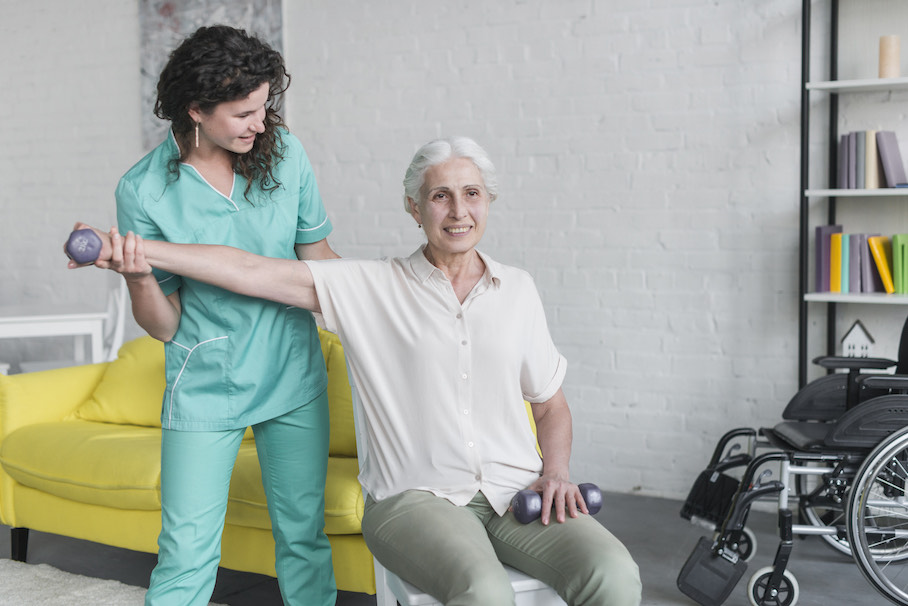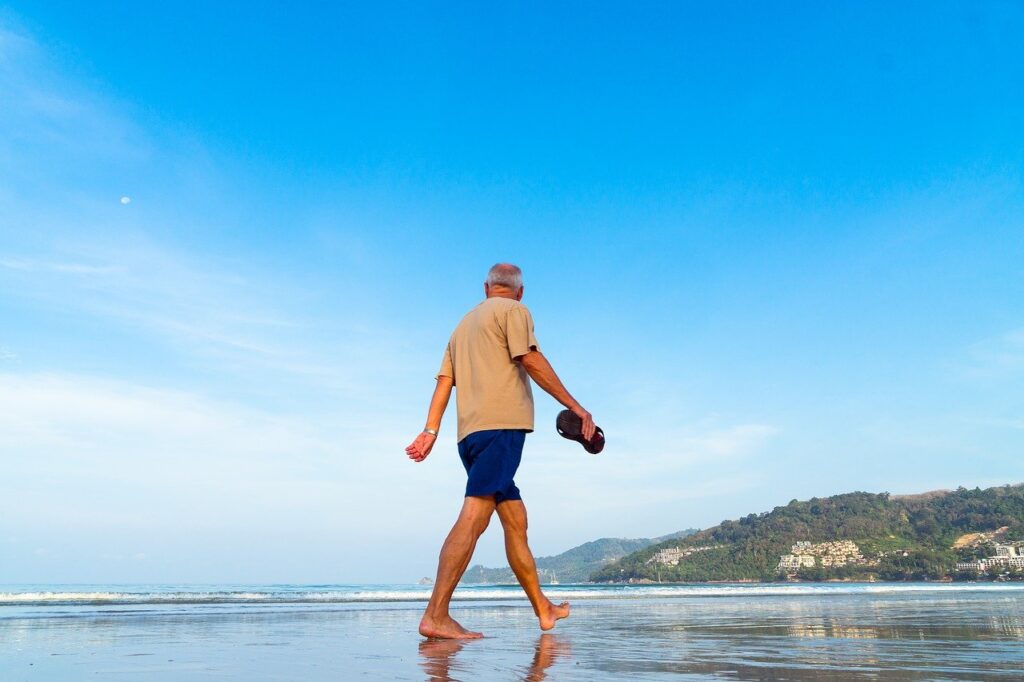Self Improvement
Benefits of Spring Cleaning for Seniors
March 30, 2024

Traditionally, spring cleaning gives us a chance to makeover our houses and get ahead of the busy spring and summer months. However, due to physical restrictions or health concerns, spring cleaning can be a difficult undertaking for elders. In this situation, Just Like Family Home Care’s support might be quite helpful. Here are some advantages of spring cleaning for seniors with the help of Just Like Family Home Care:
- Safety First: A clean and organized home is a safer home. Clutter can be a tripping hazard, and accumulated dust can exacerbate respiratory issues. Just Like Family Home Care can ensure safety during cleaning, such as preventing falls and using non-toxic cleaning products.
- Promoting Hygiene: A thorough cleaning can eliminate germs, allergens, and bacteria, which promotes a healthy living environment. Regular cleaning can improve air quality, which is particularly important for seniors with respiratory issues.
- Reducing Stress: Getting spring cleaning chores done can make you feel proud and accomplished. A well-kept and arranged home can boost happiness, lessen stress, and encourage sounder sleep.
- Fostering Independence: With a clean and organized home, seniors can navigate their space more easily, fostering a sense of independence.
- Companionship: Spring cleaning with Just Like Family Home Care can also provide valuable companionship for seniors. The presence of a caregiver can make spring cleaning a social experience, making it more enjoyable for seniors and providing an opportunity for seniors to engage in conversation and share stories.
In conclusion, spring cleaning is not just about keeping things tidy. It’s about creating a safe, comfortable, and enjoyable living environment. With the help of Just Like Family Home Care seniors can reap the benefits of spring cleaning without the stress and physical strain. It’s a win-win situation for everyone involved.
Healthy Fall Charcuterie Board
October 25, 2023

A healthy fall charcuterie board is a great way to enjoy the seasonal flavors and produce, while also catering to the needs and preferences of seniors. Here are some tips and ideas on how to make a healthy fall charcuterie board that elderly can make:
- Choose whole-grain breads and crackers that are high in fiber, B vitamins and protein. These can help with digestion, energy and blood sugar levels. You can also make your own cauliflower chips for a low-carb alternative.
- Add nuts, such as almonds, pecans or walnuts, to your board. Nuts are a healthy snack that provide plant-based protein and healthy fats. You can also roast or spice them for extra flavor.
- Load up on fruits and veggies that are in season, such as apples, pears, grapes, kumquats, figs, brussels sprouts and sweet potatoes. Fruits and veggies add color, nutrients and antioxidants to your board. You can also roast some of the veggies for a warm and cozy touch.
- Choose the right meats and cheeses for your board. Avoid cold cuts that are high in sodium and saturated fat, which are not good for heart health. Instead, opt for thinner sliced meats and choose lower-fat cheese options.
- Add one or two dips to your board, such as hummus, spinach dip or a sweet dip made with yogurt and honey. Dips can add moisture and flavor to your board, as well as provide some calcium and protein.
- Don’t forget some fun treats to finish off your board. You can add some dark chocolate, dried fruit or mini pumpkin pies for a festive touch. Just be mindful of the portion size and sugar content of these treats.
Just Like Family Home Care hopes these tips and ideas help seniors create a healthy fall charcuterie board that they can make and enjoy!
Happy Mother’s Day
May 11, 2023

Mother’s Day is a time to honor and thank our mothers for their love, care, and support throughout our lives. Just Like Family Home Care can help during Mother’s Day by providing various services and support to mothers who need assistance with their daily living or health care needs. Whether you are a senior yourself, or you have a senior mother in your life, you can make this day special and memorable by following some of these ideas:
- Enjoy a family meal. One of the best ways to celebrate Mother’s Day as a senior is to gather your family for a meal together. Just Like Family Home Care can help with preparing meals and doing light housekeeping for the mother, such as cooking, shopping, cleaning, doing laundry and dishes. The most important thing is to spend quality time with your loved ones and share stories and memories.
- Make or decorate cards. Making or decorating cards is a simple and meaningful activity that seniors can do. You can use paper, cardstock, or recycled materials such as magazines, newspapers, or cereal boxes. You can cut out shapes such as hearts, flowers, or butterflies and glue them on the cards.
- Attend a service or event. For many seniors, Mother’s Day is also a religious or cultural occasion that commemorates the role of mothers in society. Attending a service or event can help them reconnect with their faith and community. Just Like Family Home Care can help senior mother with mobility and transportation, such as getting in and out of bed, wheelchair or car and taking mother to her church or find a nearby church that offers a Mother’s Day service. We can also look for local events such as concerts, festivals, or workshops that celebrate mothers and women.
- Plant some flowers or herbs. Planting some flowers or herbs can help seniors enjoy the beauty of nature and feel hopeful about the future. Seniors can water and care for their plants and watch them grow and flourish.
- Play some games. Playing some games is a fun and festive way to celebrate Mother’s Day as a senior. Just Like Family Home Care can offer companionship and emotional support to the mother by playing various games such as bingo, trivia, charades, or board games. You can also make some prizes such as chocolates, candles, or books for the winners. Playing games can help seniors exercise their brains, improve their mood, and bond with others.
These are some of the ways that Just Like Family Home Care can help during Mother’s Day. We can make your mother feel comfortable, cared for and appreciated on this special day.
National Wellness Month!
July 19, 2022
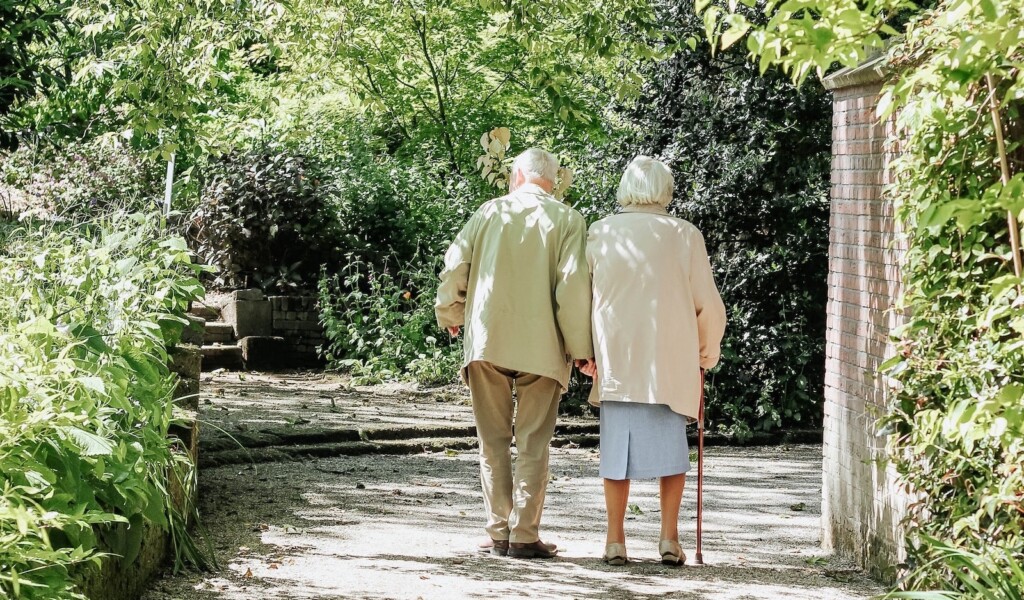
August is National Wellness Month! National Wellness Month focuses on self-care and promoting healthy habits, including sleep, exercise, proper nutrition, and taking care of our mental state, like actively managing stress, practicing self-compassion, and engaging in meditation.
The positive impact of wellness for seniors is something that cannot be overlooked. Physical wellness changes as you age. There are, however, habits to help maintain or improve everyday life, as well as reduce the risk of certain conditions and chronic diseases. Living a wellness-focused lifestyle is also important for caregivers, who must take care of themselves to take care of others.
We’ve put together numerous ways to start your wellness journey today:
Increase your water intake
To compensate for changes in body temperature regulation as we age, we need to drink more water. Dehydration can have a negative impact in the body, including muscle pain, fatigue, and heat exhaustion. Water is essential for hydrating the body for optimal functioning, improving the quality of our skin, energizing muscles, and controlling calories. As a rule, you should take one-third of your body weight and drink that number of ounces in fluids.
Add more fruits and veggies to your meals
Taking care of your body means feeding it well. There appears to be a connection between nutrition and immunity in the elderly. With a well-balanced, nutritious diet, you’ll have more energy, feel better, and will reduce the risk of illness or disease. It is extremely important, now more than ever, to protect and boost our immune system by choosing a healthy lifestyle. For more details on how food can boost your immune system, read our nutrition-focused blog post.
Consider a new activity or exercise
Regular exercise is key to staying healthy and feeling happy. Exercising and being active for fifteen to thirty minutes a day is essential for healthy aging. Exercise reduces the risk of cardiovascular diseases, hypertension, diabetes, osteoporosis, obesity, and cancer. It also decreases the risk of falls and fall-related injuries. It’s important to ensure that any medical conditions or diseases you have are properly managed before starting a new physical wellness routine. Set realistic goals and develop an exercise plan. Consider endurance, muscle-strengthening, balance, and flexibility exercises.
Meditate, be creative, or practice gratitude
Meditation trains the brain and body to relax and focus on being in the present. For older adults, even five minutes of meditation a day has many physical and psychological benefits. Such as improved focus, improved calmness, and reduced stress. The easiest way for seniors to meditate is to focus on their breathing. You can slow down and relax with this technique: count five deep breaths, inhaling through your nose and exhaling through your mouth. Being creative also has a positive impact in our brain health. Wellness month can inspire you to finish long-term projects you may have started but haven’t taken the time to complete. Home-care companions or sitters are the perfect company to work on a creative project!
Gratitude can reduce depression, chronic pain and boost emotional well-being. Focus on one good thing that happened every day. As a result of doing this daily, our brains learn to switch directions more quickly to recover faster from setbacks.
Rest, sleep and repeat
Getting enough sleep and rest is just as important to physical wellness for seniors as a healthy diet. In the same way your body needs to be active, it also needs to rest and recharge for the next day. Sleeping well can prevent falls and accidents. Seniors who exercise regularly and go outside for fresh air fall asleep faster, sleep longer, and report better quality of sleep.
Here are a few tips to help you improve your sleep routine: Go to bed at the same time and get up at the same time every day. Maintain a comfortable temperature in your bedroom, which should be quiet, dark and relaxing. If you have trouble sleeping, try out black out shades or a white noise machine. Weighted blankets may also be handy to relax the body. Try to avoid large meals before bedtime and stay away from foods that will give you heartburn.
Have a daily routine
Having a daily routine for seniors has many benefits. Routines create structure, give us a sense of accomplishment, and help us manage stress by keeping us focused. When someone feels out of control, such as losing their cognitive or physical capabilities, it is beneficial to focus on what they can control. Establishing a daily routine tailored to an older adult’s particular needs and interests is a good place to start. It’s tempting to sleep or stay in bed for a long time but having a consistent sleep schedule will improve your daily routine as well. Just like Family Home Care can help you find the right person to stablish a wellness-focused daily routine.
Consider at home care to establish these healthy habits
In addition to these suggestions, it’s also important to regularly visit a trusted medical professional to ensure your physical wellness is maintained as you age. These small steps can lead to many more healthy habits in your lifestyle. Make a small change and impact your health in positive ways. If you or someone you love need help creating a routine and improving their wellness. Contact us! We can refer you to a professional at-home caretaker that will help you live a wellness lifestyle. Happy wellness month!
Senior Activities for Summer 2022
May 31, 2022

As you grow older, paying extra attention to your daily activities is an essential part of aging well. Seniors who go outside, cultivate new hobbies, develop new skills, and keep moving in retirement may actually live longer and healthier lives. Remaining socially and physically active also lowers the risk of depression and anxiety. Having every-day interactions, engaging in a new hobby, and attending fun events improves mental health and prevents loneliness.
Even just an outdoor walk can help reduce blood pressure, lower blood glucose, and slash your risk of heart disease. Sunlight is a great source of vitamin D, which can help fight osteoporosis, anxiety and depression. Vitamin D also boosts the immune system and improves brain health. Older adults are more prone to heat stress, so you should be exceedingly careful with activities in the heat.
Below is a list of outdoor and indoor activities to consider during the summer:
Relax and watch the sunset or spend the morning at the beach
Getting some fresh air is great for older adults, but seniors might need some extra care and preparation beforehand to make sure it’s safe. When picking a beach, keep factors in mind like local weather, nearby healthcare services, and other things that can affect your day. Take your beach trip early in the morning or later in the day, and consider wearing beach-ready shoes and mobility aids. Remember to stay hydrated and have fun! We recommend bringing a book or an audio-book. Learn more about senior beach safety here.
Visit a national park or community park
Southwest Florida has beautiful state parks. Knowing where to find a great outdoor park near your neighborhood is essential. With so many gardens and natural areas to explore, it’s always easy to enjoy a book outside, or gather with friends and family for a picnic. Consider visiting a Botanical Garden or going on a nature walk.
Fishing
Fishing is a relaxing activity that can help lower stress and anxiety and it involves light physical activity that can be beneficial for seniors. Fishing is something all ages can enjoy, and it’s an excellent activity to share with grandchildren. To avoid scorching temperatures, go in the early hours of the morning or in the evening. Don’t forget to pack snacks, water, and sunscreen. Bonus: Florida residents age 65 or older do not need a recreational hunting, freshwater fishing or saltwater fishing license.
Golfing
Golf is a timeless and ageless game with multiple benefits. Florida is one of the most popular golfing destinations in the world. Golfing works all muscles in your body, including your brain, and many golf courses have lounges where you can socialize and form new relationships. Learn more about public golf courses in Naples FL here.
Spend the day at a local Museum:
Immerse yourself in culture while escaping from high temperatures! Museums constantly “keep their cool” for conservation and preservation measures. This means you can count on art and history museums for some of the coolest escapes from the hot days of summer.
Stroll the Farmers Markets
Check the community events section in your local newspaper or news broadcasting. The summer season means farmers markets are in full bloom all over Southwest Florida. Farmers markets are a great way to stay active, have genuine conversations with your community, and enjoy local produce or refreshments.
Enjoy the Theater, Opera, or Live Music
Live music and outdoor events have gained popularity in many communities. Some places offer concerts, while others feature live plays or opera events. Matinees are a great way to escape the summer heat or the rain. Outdoor events often take place in the evenings when temperatures are cooler.
If you or your loved one need help or companionship to enjoy these activities and adopt healthier lifestyle choices, contact us today to find the right care for you.
Boost Immune System Health in Elderly Seniors
November 1, 2021
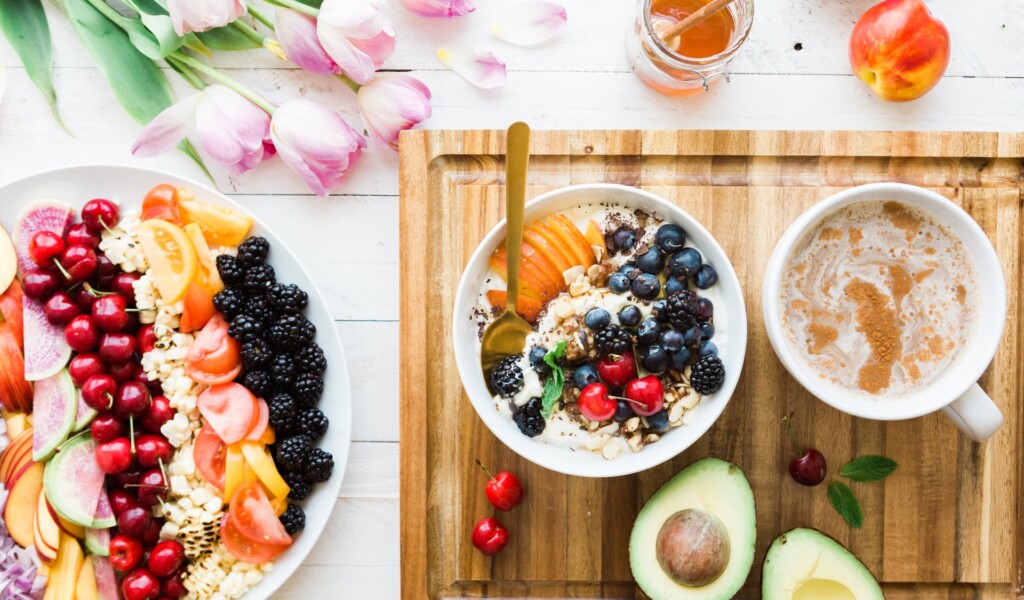
As we age, our immune response capability becomes reduced, making us prone to more infections and life-threatening diseases. Respiratory infections, including, influenza, COVID-19 and pneumonia are a leading cause of death in people over 65. It is extremely important, now more than ever, to protect and boost our immune system by choosing a healthy lifestyle. Schedule a yearly checkup and speak to your doctor about different supplements and habits to keep a strong immune system. Every part of our body, including our immune system, functions better when protected from environmental assaults and strengthen by healthy-living habits.
We’ve put together a few habitual tips to help us naturally keep our immune system working properly:
1. Be active every day
Physical activity is an immune system booster. The more you move, the more your body is able to fight inflammation and infections. Fresh air and sunshine can go a long way, put on your shoes and head out for a walk. At-home workouts are effective too. Read our blog post about effective at-home workouts to learn more.
2. Eat a well-balanced diet
There appears to be a connection between nutrition and immunity in the elderly. Seniors tend to eat less and often have less variety in their diets. Eating essential vitamins and trace minerals boosts our immune system. Brightly colored foods are full of antioxidants that improve health and keep our system strong. Consuming foods that contain probiotic bacteria such as yogurt, certain milks and cheeses, are reported to enhance the immune system as well.
3. Get adequate sleep
Not only can sleep reduce our stress levels, but sleep is how our body repairs itself. When we are running on a little or no sleep our systems tend to weaken, impacting our overall health. Sleep is also important as we get older because it can improve memory and concentration. Aim for at least seven and a half to nine hours of sleep per night.
4. Reduce Stress
Chronic stress increases our body’s production of the stress hormone cortisol. Too much cortisol can disrupt different functions in your body, weakening our system with time. To reduce stress, increase physical and social activities, get plenty of sleep, explore relaxing and meditating. Learn more about senior anxiety and stress here.
5. Take steps to avoid infection
Wash your hands frequently and cook meats thoroughly. The most effective steps individuals can take to reduce the spread of COVID-19 and other viruses is to keep a physical distance of at least 1 metre from others, open windows to improve ventilation, avoid poorly ventilated or crowded spaces, cough or sneeze into a bent elbow or tissue, and consider getting vaccinated.
If you are ready to incorporate these habits and will love some support, Just Like Family Home Care’s recommended services in Lee County and Collier County will help you stay engaged and healthy. Allow caregivers to accompany and drive you or your loved one to the grocery store, a doctor’s appointment, go for a walk, or a social event. Caregivers can also engage with clients through mentally stimulating board games, cards, or puzzles. Learn more about our services here.
Should Seniors Consider Getting a Pet? Everything to Know
September 3, 2021
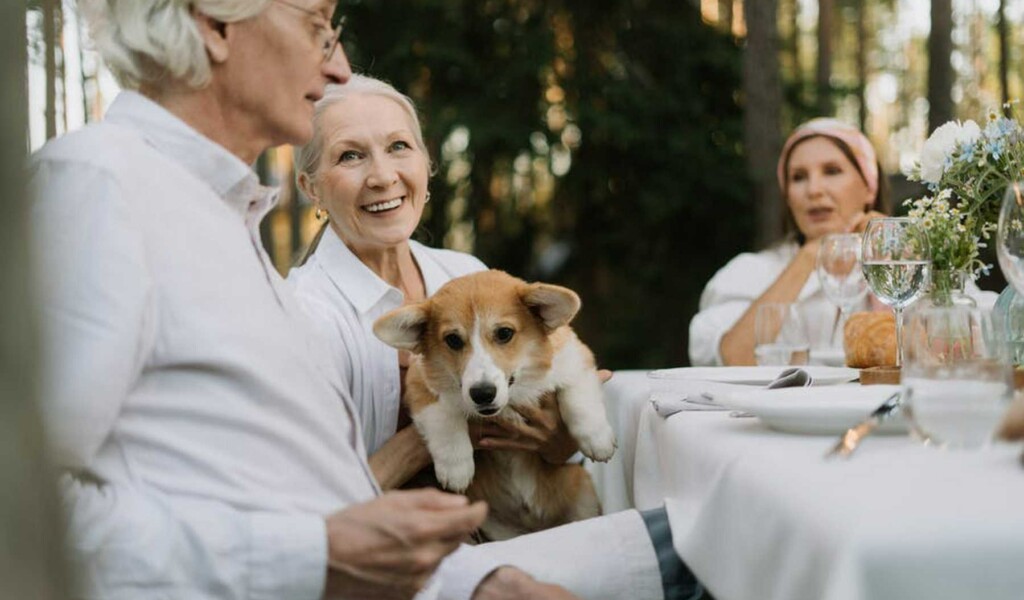
Are you looking for ways to keep your elderly loved ones busy as they transition into their next stage of life? Do you want to make sure they have a companion to hang out with and take care of? If so, then you need to learn about the benefits of getting a pet for your senior.
There are many benefits of having a pet as a senior. These benefits include improving their social life, improving their mood, creating a routine, health benefits, helping them cope with stress, and more.
Read below for an in-depth guide on getting a pet for a senior and why it’s the best decision you’ll ever make.
1. Improves Their Activity Levels
One of the biggest struggles that you will have is ensuring that your elderly loved ones stay active. As they age and start to suffer from aches and pains, they have less motivation to get out and walk around.
However, the benefits of high activity levels in older adults are too good to pass up. It can help reduce the probability that they’ll fall, reduces their blood pressure, helps reduce chronic pain, and can ensure that your loved one is able to live independently.
Now the problem becomes helping them find the motivation to do so. As it turns out, furry friends might be the best solution for this issue. Pets (specifically dogs) can encourage more activity with their elderly compadres. Your loved one will find more purpose in going for walks outside, and working out in moderation to be able to keep up with their pup.
Pets will also keep your loved ones busy inside their living space as well. Between getting up to let them outside, feeding them, giving them water, and petting them, they’ll have no choice but to remain active!
2. Lifts Their Mood
Unfortunately, recent research has shown that elderly people are starting to experience more and more symptoms of anxiety and depression. In fact, it’s believed that 7 million Americans over the age of 65 suffer from anxiety or depression, especially while living in constant fear of current events.
This has become somewhat of a vicious cycle. As elderly people lose the motivation to exercise, their body starts to produce less feel-good hormones, which will welcome in higher levels of stress and anxiety.
Fortunately, pets have been shown to elevate a human’s mood substantially. Dogs have been credited with easing the loneliness of others thanks to the constant feeling of companionship that they give you. This is especially helpful for those that have lost a loved one.
In fact, petting a dog has proven to release oxytocin in your brain, which is one of the feel-good hormones that we mentioned earlier. It helps you to feel calm and relaxed. Pair that with the higher levels of dopamine that their brain will produce from the uptick in exercise, and you can thank your new companion for putting in all the hard work!
3. Constant Companionship
There’s nothing better than walking into your home and seeing your dog explode with excitement. it makes you feel appreciated and as if you’re the only thing in the world that matters.
Elderly people need companionship. However, as they age, they start to lose interest in keeping up with their social lives. They might even start to feel lonely if they’re trapped in their house by themselves.
You want to be there for them as much as possible, but you have your own life to keep up with as well. You want to make sure your loved one has someone to love on them whenever you’re not around.
Just Life Family will refer you to the caregiver for your loved one’s needs. These companion services can even help out with your loved one’s pet. Caregivers are happy to engage with clients through mentally stimulating board games, cards, or puzzles, taking the dog for a walk, or assist with household chores.
4. Creates a Routine
The secret isn’t just to get your loved one to engage in physical activity or social events every once in a while, they need to commit to a routine of it to see the best results.
This is perhaps the biggest benefit of seniors adopting a pet. To care for them, your loved one will form a consistent routine and stick to it.
Should seniors adopt a pet? Going on walks and having a stable routine is worth the investment.
5. Staying Social
Walking with a dog results in a significantly higher number of chance conversations with complete strangers than walking alone. A caregiver referred by Just Like Family can also drive your loved ones to the dog park, the pet store, or grab lunch at a dog-friendly restaurant. A dog is a great conversation starter!
We all have a tendency to get concerned when your elderly loved one seemingly has nothing to talk about on the phone. The conversation can grow stale. With a pet to keep them on their toes, you’ll start to notice that your loved one will come back to life.
Talk to Your Loved Ones
Consider talking to your loved ones about getting a dog or a cat. They might be hesitant at first, but these key points might help. Be sure to read this article for more restorative strategies you can try if your elderly loved one has senior anxiety. Be sure to call us toll-free at 877-434-5530 for more information regarding our caregiver referrals and services.
Effective At-home Workout for Seniors
February 11, 2021
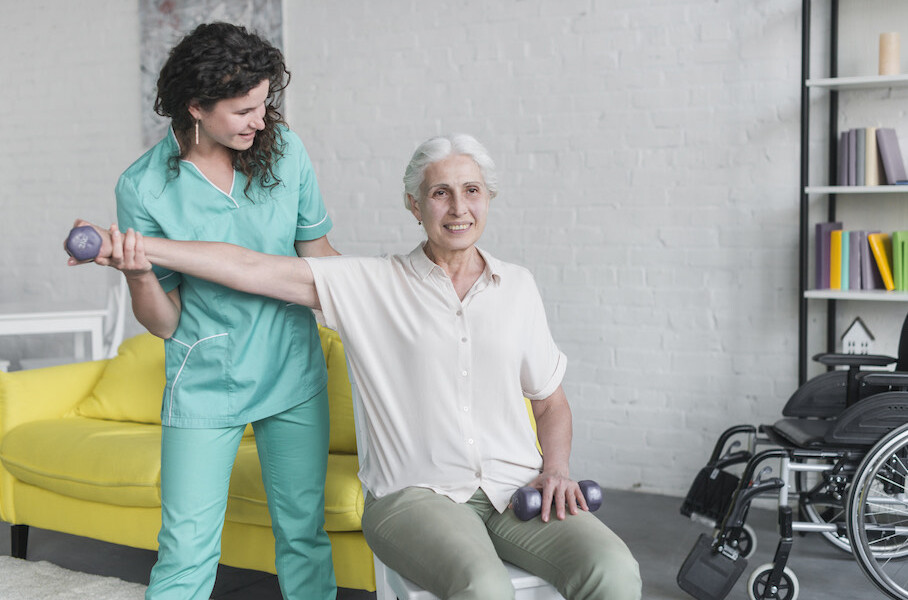
Home is the safest place for senior citizens to be during the Covid-19. But the pandemic has further reduced the activity levels of senior citizens as they must stay indoors and observe social distancing. This lack of activity can be harmful to your physical and mental health. Working out can help keep your weight down, reduce stress and depression, increase physical fitness. Getting exercise is particularly important for senior citizens. It reduces diseases such as strokes, diabetes, and high blood pressure. Our at-home workouts for seniors are low impact so there is little chance of injury.
Even a small amount of exercise can go a long way towards improving your health. Ten minutes of yoga or walking has significant benefits. Also, seek medical advice before starting any exercise regimen as some activities may be unsafe for you to take part in.
Along with your workouts, ensure that you get 7 to 8 hours of sleep a night and eat a healthy diet. Senior citizens need to eat nutrient-dense foods to keep their immunity up. So do your best to cut processed foods, sugar, and trans fats from your diet.
But how can you stay healthy when you must avoid the gym due to Covid-19 restrictions? Keep reading for the best at-home workout for seniors that will help you stay physically and mentally fit.
Walking
Walking around your house is one of the best at-home workouts for seniors. Wear a pedometer and aim to at least 5000 steps a day of walking. If you have stairs at your home, you can do an effective step up step down on the bottom step of the staircase.
If your community allows it, take walks outside the home too for at least half an hour each day. Going out to get some sun and fresh air will keep you fit and also help boost your happy hormones.
Double up on the benefits of your walking workout by listening to music, an audiobook, or a podcast. This can reduce your stress levels and help stimulate your brain.
Balancing Exercises
We tend to lose our mobility as we grow older which makes us vulnerable to slips and falls. For senior citizens, a nasty fall can lead to major health problems and even result in a fatality. Some at-home exercises can help with balance and mobility for seniors.
The first exercise you can do is a single leg stand. Hold on to the back of a chair and stand on one leg. Folding your other leg at the knee.
Stand like this for a count of ten and then switch legs. The second exercise is the opposite arm and leg balance. Stand on your left leg with your other leg folded at the knee.
Stretch out your right hand ahead of you and count to 10 before switching to your other hand and leg. You can hold on to a chair with your free hand to keep your balance.
The third balancing exercise you can do at home is the heel to toe walk. This is a similar exercise to the sobriety test conducted by police officers. Basically, walk in a straight line making sure that the toe of your rear leg touches the heel of the leading leg.
Stretching
To prevent injury, fitness advisors recommend stretching before and after any physical activity. Daily stretching has many benefits such as increasing blood flow to our joints and muscles. It also helps reduce stress and post work out soreness and improving our posture.
Stretching keeps our muscles flexible and increases our joints’ range of motion. Seniors that don’t stretch tend to have shorter, tighter muscles. This can make it hard to do certain activities like bending or reaching for items.
Stretch your upper body by raising your arms straight over your head and interlacing your fingers. Lean as far as you can to the left and hold for 20 seconds. Then lean to the right and do the same. You can do this stretch while sitting or standing.
You can also stretch your lower body through knee to chest stretches. Lie flat on your back then bring one knee to your chest and hold it down by the thigh for 20 seconds. Switch legs and repeat the stretch.
There are several other stretches you can do for all your major body parts or muscles such as arms, back, hamstrings, and calves.
Weight Training
Another important exercise all seniors should have as part of their fitness routine is weight training. Resistance exercises and lifting weights help you build muscle. This can ward off weight gain and improves your strength and mobility.
As you walk around the house carry two dumbbells or improvise by using water bottles or canned food. You can also get a resistance band and work out with it for a few minutes every day.
Meditation
Meditation is an ancient practice whose health benefits are now scientifically proven. The practice reduces anxiety by 60% and cuts the risk of being hospitalized for heart disease by 87%. This is because it helps to reduce the stress hormone called cortisol. Cortisol causes weight gain as well as mental illnesses.
Mediation naturally reduces cortisol levels in the body leading to improved physical and mental health. Meditating for at least 15 minutes daily also helps you sleep better while lowering blood pressure and reducing depression. This is why you should make meditation a part of your daily routine.
Mental Exercises
At-home workouts for seniors shouldn’t be limited to physical exercises. It is just as important to take care of your mental fitness. Get some memory games on your smartphone and play them for a few minutes each day.
You can also get a puzzle book with crosswords, sudoku, and brain teasers. These help keep your brain working for a few minutes every day. Exercising your brain can prevent memory loss and increase brain functionality.
Looking for assistance?
Home Health Aides or Certified Nurse Assistants referred by Just Like Family are experts in assisting with daily exercises in addition to all of the other services listed HERE.
2021 Resolutions for Seniors
January 4, 2021
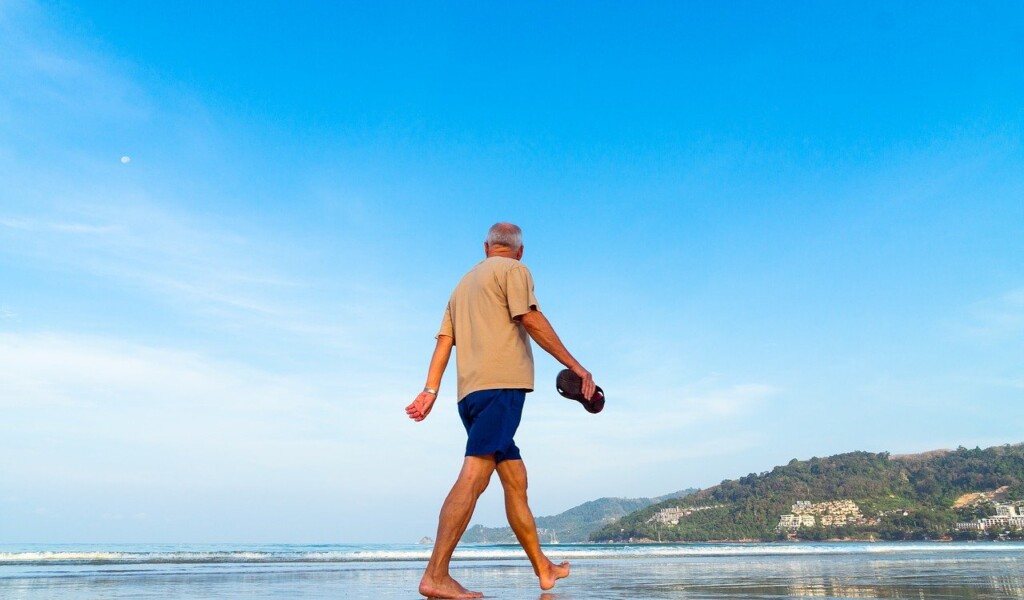
Have you considered what your 2021 New Year’s resolutions are going to be? Do you want to be healthier and more active? Do you want to find new ways to communicate with others? Would you like to be more engaged with your community?
For seniors, prioritizing health becomes more important with every passing year. Top resolutions for seniors often include age-appropriate lifestyle changes that focus on improving health, engaging more with others, and focusing on a more active and happier lifestyle. Southwest Florida offers a huge range of opportunities for seniors to find a new passion, hobby, or goal.
Here are some of the best New Year’s Resolutions for seniors, 2021 edition!
Top New Year’s Resolutions and goals
Any New Year’s resolution for seniors should include positive ways to boost health and overall quality of life. They should be attainable and reasonable goals.
Eat Healthier
With age comes weight gain, hypertension, diabetes, and other chronic illnesses. Some of them can be managed through our nutrition. We need fewer calories but more nutrients.
Look to add more fruits and vegetables to your meals. Pick seafood and poultry more often than red meat. Include whole grains, legumes, and nuts. Cook with healthier fats like olive and avocado oil.
Use more spices to reduce the amount of salt you consume. Look to alternatives like fruit and dark chocolate to satisfy your sweet tooth while reducing sugar from your diet.
Exercise Every Day
Staying active is the key to healthy aging. Older adults should focus on four types of activity: aerobic, strength, flexibility, and balance.
Just a little bit goes a long way. Start by adding 10 minutes of activity to your day. Increase it slowly and work your way up to 30 minutes of activity a day. You don’t have to do it all at once. Even 10 minutes three times a day will have a positive impact on your wellbeing.
Consider exercises like walking and swimming for your aerobic activity. Yoga is a great way to incorporate strength, flexibility, and balance in one exercise!
Exercise Your Brain Too
Try to learn something new every day. Lifelong learning is important to keep your brain resilient and help you deal with stress. Keeping your cognitive skills sharp reduces the chance of memory loss.
Take a class through your community or local university. Join a book club, learn a new language, or find a photography group. Find a game you enjoy – like sudoku or crossword puzzles – and increase the difficulty level to keep challenging your brain to adapt and work harder.
Find a New Hobby
Find ways to engage in activities you enjoy. Creative activities like painting, writing, and playing a musical instrument can improve your mood and challenge your brain. Or pick something more meditative and relaxing like fishing, crocheting, or gardening.
Look for Volunteer Opportunities
Did you know that volunteering can reduce stress and depression? It might even help you live longer. Regular volunteer work keeps you mentally, physically, and socially active. Plus, it’s a great way to give back to your community.
People who volunteer report increased self-confidence and fulfillment in their lives. It’s a great way to meet other people to stave off loneliness and isolation. And, it helps you appreciate what is good in your life.
Become a Social Butterfly
Whether you’re an introvert or the life of the party, all older adults benefit from a little social activity. It’s linked to increased cognitive skills, lower depression, and improved health overall.
Find new friends through volunteering activities, book clubs, or community classes. Consider the social advantages of a senior community. You’ll always find someone with a similar interest to play cards or go for a walk with you.
Use technology to help you keep in touch with family and friends. Use email, social media platforms, and video chats to connect with others. And, don’t forget the classics – telephone calls and letter writing still work just as well, too.
Maintain a Positive Outlook
Many people downplay the importance of having a positive outlook. It doesn’t mean avoiding conflict or looking at the world through rose-colored glasses.
It means focusing on what you can change and not stressing about what you can’t.
It’s been linked to a lot of health benefits. People with a positive outlook have a lower risk of memory loss and chronic disease and decreased feelings of loneliness. They feel less isolated and recover from injuries and illnesses faster.
Try to incorporate positive thinking exercises into your day. Keep a journal or make a gratitude list to remind you of your positive intentions.
Prioritize Your Overall Health
Every 2021 Seniors New Year Resolutions should include being more proactive about your health. Keep up with your annual check-ups. They’re important for preventative care and catching potential issues early. Review your insurance and Medicare benefits every year to make sure your coverage is still right for you.
Use technology to stay on top of medications and monitor your heart rate. Use apps to track your exercise routines or help you quit smoking. Take advantage of telehealth to consult with your doctor from the comfort of your home.
If you need help, ask for it. Whether you need help with household chores, grocery shopping, transportation, or just someone to talk to. There are resources available to help with all of these things and more.
If you need more than just a little help around your home, that’s available too. Places like Just Life Family Agency can offer caregiver referrals to help you when you need it.
Senior New Year’s Resolutions
Use these New Year’s resolutions to guide you into a joyful and happy 2021. Be intentional with your goals to stay active and healthy in the coming year.
Contact us for a free consultation to learn more about quality home care and if it’s right for you.
Seniors and Technology
June 13, 2019

Seniors and those recovering from surgery/injury can often feel isolated and/or afraid.
Caregivers, whether family or professional, can participate in their care and provide personal interaction, but often are only in attendance as needed. Fortunately, we have come a long, long way in how technology can help create needed connections to the “outside world.” Most of us cannot imagine a world without computers, or at least tablets and smartphones. But, many seniors still find these to be intimidating, having grown up in a time where telephones had wires and dials! The good news is that technology has made the new tools incredibly simple to use.
We at Just Like Family, encourage our clients, families, and friends to take advantage of the technological connections that are possible. Minimally, today’s cell phones can provide access, inexpensively, to basic phone calls, email and texting to family and friends, even internationally. Helping seniors, especially, understand the service they have, and how much access it can provide is critical.
While the phone can handle much more than basic calls and texting, access to a tablet and/or a computer makes access to these other tools much more enjoyable, if only for the size of the screen.
Phones & Tablets
We encourage seniors and patients to obtain a tablet/computer and learn how to participate in the following:
FaceTime
Having a conversation where you can actually see the other party is amazing. Not only can the senior see how the grandkids have grown, but the other party can check on the condition of their loved one and even their surroundings. Simple explanations of how FaceTime works are offered via ‘YouTube’ and other ‘how to’ sites. Other programs, such as Skype, offer similar service, but FaceTime seems to be the most popular and easiest to use.
Music
With a little help, seniors can set up their tablet (or phone) to play their favorite music, perhaps re-living special memories connected to certain songs. Most of us find that music lifts our spirits, if even just for short periods of time.
Brain activity
Tablets or computers are especially good for activities that keep the brain engaged, as a larger screen makes these more enjoyable. We encourage seniors to use technology for:
Reading
The ability to adjust the font, colors, etc. is very helpful to those whose vision is not as sharp. Online e-books can be found for free, or at a low cost. Those who struggle with memory issues find that highlighting certain passages improves memory, and appreciate the ability to ‘search’ for a person or action that they don’t remember. In addition to e-books, newspaper subscriptions are available at a significantly lower cost than print versions and can help the reader stay current with local events.
Mind/brain exercise
Apps, many for free, are available for many games or activities that help keep the brain sharp. Examples are Sudoku, Scrabble, and crossword puzzles. A simple search for “brain games,” however, identifies many more.
Technology Supporting Seniors Living at Home
Beyond the basic computer/table/phone ideas, new technologies provide other services that specifically help senior and the homebound. Three specific components we recommend be considered:
Emergency Response System
We tend to think of this as the “I’ve fallen and I can’t get up” system, but much more is available. A button you can push to summon help is still there, but the systems can also track whether the client has been still for too long, or has actually fallen. Seniors report that the “button” makes them feel much more secure about continuing to live at home, as well as feel connected to the outside world. In the worst situation, this technology can literally be a life-saver.
Medication Management (reminding/dispensing)
You don’t have to be a senior to have trouble remembering to take your medication, but many of our clients report this as an issue. Simple options, such as a weekly box that is ‘loaded’ with medications for each day of the week, and even for A.M. and P.M., are widely available. Many pharmacies, and companies, now package prescriptions for their clients by the day, or multiple times a day. Technology is also bringing us systems that remind us what to take when, and how much. These systems can include alarms and reminders (such as take at bedtime.) Use of these systems is encouraged, and we look forward to even more options in the future.
SmartHome technology
The ability to see what is going on, inside and outside of the home, as well as to control one’s surroundings is the latest technological advancement. The ability to see who is at the front door, and even to talk to that person, is a technology our clients might find useful. Many report that they feel much safer, and therefore more comfortable being alone, with this simple device. Other technologies to consider include those that allow the resident to address comfort issues without moving, including applications/devices that allow the resident to use their phone to adjust the temperature, turn the lights off and on, and even lock/unlock doors.
Technology and Home Care
Technology will never replace personal care, but it can help reduce the amount of care needed and increase self-sufficiency. Technology will never replace the joy of an in-person visit with a caretaker, family member or friend. But, the ability to connect via technology can overcome long distance, and well as time challenges. We all can find technology a challenge, but the joy and connection it brings make the effort worthwhile.
